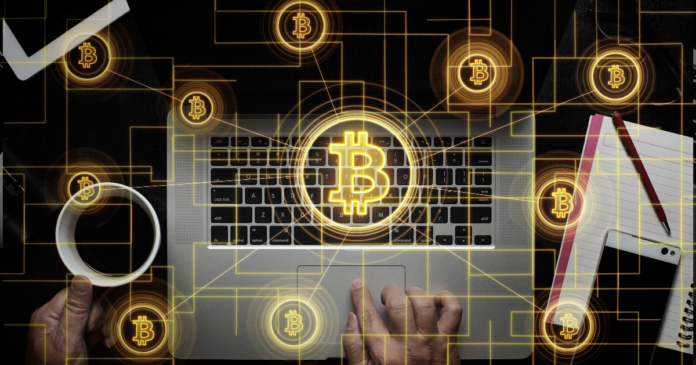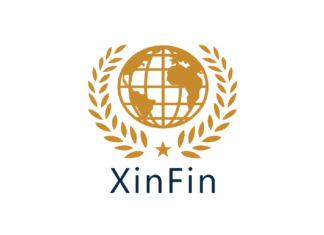Bitcoin has gained popularity not only for its potential to serve as a decentralized digital currency. But also for its unique property of being unconfiscatable.
In this article, we will delve into the concept of unconfiscatable property. And explain how Bitcoin stands as a paradigm shift in the financial landscape. Allowing individuals to maintain ownership and control over their wealth outside the current system. Before we explore the unconfiscatable nature of Bitcoin, it’s essential to understand the limitations and vulnerabilities too.
The Current System
Traditional banking systems and fiat currencies are heavily centralized, and controlled by governments and central banks. This centralization gives these institutions the power to seize or freeze assets. Leading to property confiscation, capital controls, and a lack of financial privacy.
Max Keiser explains to Tucker Carlson how #Bitcoin is unconfiscatable property outside the current system 😮 pic.twitter.com/RedKjRGw5w
— Bitcoin News (@BitcoinNewsCom) September 20, 2023
Furthermore, inflation and currency devaluation can erode the value of your hard-earned money over time. Individuals often have little say in these monetary policies, which can drastically affect their financial well-being. In such a system, the security of your wealth is largely dependent on the stability and benevolence of those in power.
The Unconfiscatable Nature of Bitcoin
Bitcoin, conceived by an anonymous figure called Satoshi Nakamoto in 2008, was designed to address many of these issues. At the core of its revolutionary design is a decentralized ledger known as the blockchain. Which makes it exceptionally resistant to confiscation. Here’s how Bitcoin achieves unconfiscatability:
- Decentralization: Bitcoin operates on a decentralized network of computers around the world. Unlike traditional financial institutions, there is no single central authority that can dictate its rules or seize assets. The network is maintained by miners who validate transactions and secure the blockchain. Making it nearly impossible for any single entity to control or confiscate Bitcoin.
- Ownership and Control: In the Bitcoin network, users have complete ownership and control of their digital assets. Private keys, which are cryptographic keys unique to each Bitcoin address, are the means to access and transfer your funds. As long as you keep your private keys secure, no one can take your Bitcoin away from you. This level of control is a stark contrast to traditional banking systems where account seizures can occur without warning.
- Borderless and Permissionless: Bitcoin is a borderless and permissionless system. You don’t need anyone’s approval to use it, and you can transact globally without restrictions. This means that even if your government imposes capital controls or freezes your traditional bank account, you can still access and move your Bitcoin.
- Resistance to Inflation: Bitcoin’s supply is capped at 21 million coins, and its issuance is governed by a predefined, transparent protocol. This scarcity makes it resistant to inflation and currency devaluation, providing a store of value and an excellent hedge against economic instability.
- Pseudonymity: While Bitcoin transactions are recorded on a public ledger, the identities of the participants are pseudonymous. Users are represented by alphanumeric addresses rather than their personal information. This offers a degree of financial privacy and security that is absent in traditional banking systems.
#Bitcoin explained like you’re in 5th grade. pic.twitter.com/Mm5h5cfYDw
— Documenting ₿itcoin 📄 (@DocumentingBTC) October 14, 2023
Challenging the Status Quo
Bitcoin’s unconfiscatable nature challenges the status quo of the financial system. It empowers individuals with financial sovereignty. Giving them the ability to protect their wealth from arbitrary confiscation and inflation. This is particularly significant in regions where governments have a history of seizing assets or imposing capital controls, as individuals can now have a financial safety net in the form of Bitcoin.
Moreover, Bitcoin has garnered the attention of institutional investors and corporations as a hedge against currency devaluation and a store of value. Tesla, MicroStrategy, and other prominent companies have invested billions of dollars in Bitcoin, recognizing its potential to preserve its assets and provide long-term value in an uncertain financial world.
Evolving Regulatory Challenges
While Bitcoin’s unconfiscatable property offers numerous advantages, it also poses challenges for regulators and governments. Some governments have sought to regulate or even ban Bitcoin, citing concerns about money laundering, tax evasion, and its potential to undermine traditional financial systems. However, enforcing such bans has proven difficult due to the decentralized and global nature of Bitcoin.
As governments grapple with the rise of cryptocurrencies, it is crucial to strike a balance between protecting the interests of their citizens and allowing for innovation in the financial sector. Many argue that embracing Bitcoin and other cryptocurrencies can lead to a more transparent, efficient, and inclusive financial system.
🚨BREAKING🚨: 🇦🇺Australia Crypto Regulation. #cryptocurrency #CryptoNews #Bitcoin pic.twitter.com/KkY8farSrq
— Bitinning (@bitinning) October 16, 2023
Conclusion
Bitcoin’s unconfiscatable property represents a revolutionary shift in how we perceive and manage wealth in the modern world. It provides individuals with a level of financial autonomy and control that is virtually unattainable within the current centralized financial system. As Bitcoin continues to gain acceptance and adoption, it challenges governments and central banks to adapt to a changing financial landscape while allowing individuals to safeguard their wealth from arbitrary confiscation and inflation.
While regulatory challenges persist, Bitcoin’s unconfiscatable nature demonstrates the power of decentralization and the potential for individuals to have a say in their financial future. It’s a testament to the idea that in a digital age, the concept of ownership and control over one’s wealth is evolving, and Bitcoin is leading the way.
Disclaimer
The information discussed by Altcoin Buzz is not financial advice. This is for educational, entertainment, and informational purposes only. Any information or strategies are thoughts and opinions relevant to the accepted levels of risk tolerance of the writer/reviewers and their risk tolerance may be different than yours. We are not responsible for any losses that you may incur as a result of any investments directly or indirectly related to the information provided. Bitcoin and other cryptocurrencies are high-risk investments so please do your due diligence. Copyright Altcoin Buzz Pte Ltd.





























